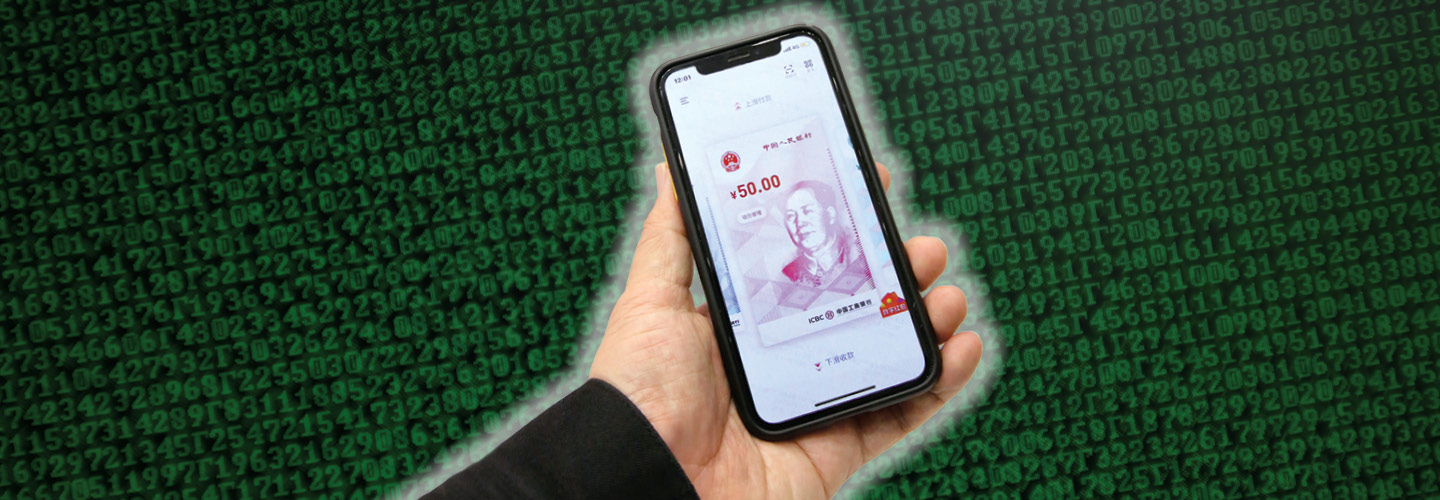Annabelle Huang, 28, recently won a Chinese government lottery. As a prize, she got to test out the country’s new digital currency. Two hundred electronic Chinese yuan, or eCNY, worth about $30, showed up on her phone. To spend it, she went to a convenience store for some nuts and yogurt and pulled up a QR code for the digital currency, which the store scanned for payment.
You probably already use digital money, as many people opt to pay for items with a card or app rather than by forking over bills and coins. But there are differences between the money involved in your digital payments and China’s experiment with digital currency: Your debit card or payment apps are linked to the physical cash you can withdraw from your bank account, for starters. China’s new currency, on the other hand, must always be exchanged electronically because it has no physical form.
The first digital currencies to gain popularity were cryptocurrencies, such as Bitcoin, which was created in 2009 and uses complex technology to protect users’ privacy. As cryptocurrencies have taken off, dozens of countries have considered creating their own official digital currencies. Unlike cryptocurrencies, these are backed by a government’s central bank, which oversees the monetary system for the entire nation. That means they’re likely to be more universally recognized as “money”—something you can use to pay for goods and services. Most businesses still don’t accept Bitcoin.
The U.S. is in the early stages of developing a central bank digital currency (C.B.D.C.), but some experts are excited about the idea.
“For hundreds of years, governments have made money to help people buy and sell things . . . but technology is moving, and the governments have fallen behind,” says Tadge Dryja, a research scientist at the Massachusetts Institute of Technology’s Digital Currency Initiative, which is researching C.B.D.C.s with the Federal Reserve Bank of Boston. “This is like updating cash for the era of the internet.”
Annabelle Huang, 28, recently won a Chinese government lottery. As a prize, she got to test out the country’s new digital currency. Two hundred electronic Chinese yuan, or eCNY, worth about $30, showed up on her phone. To spend it, she went to a convenience store for some nuts and yogurt. When she was ready to check out, she pulled up a QR code for the digital currency, which the store scanned for payment.
You probably already use digital money. In fact, many people pay for items with a card or app instead of using bills and coins. But there are differences between the money involved in your digital payments and China’s experiment with digital currency. For starters, your debit card or payment apps are linked to your bank account. These are just alternatives to withdrawing physical cash. But China’s new currency has no physical form. That means that it must always be exchanged electronically.
The first digital currencies to gain popularity were cryptocurrencies. One of them, Bitcoin, was created in 2009. It uses complex technology to protect users’ privacy. As cryptocurrencies have taken off, dozens of countries have considered creating their own official digital currencies. Unlike cryptocurrencies, digital currencies are backed by a government’s central bank. Central banks manage the monetary system for the entire nation. Government-created digital currencies are more likely to be universally recognized as “money.” In other words, they’re likely to be considered something you can use to pay for goods and services. Most businesses still don’t accept Bitcoin.
The U.S. is in the early stages of developing a central bank digital currency (C.B.D.C.). Some experts are excited about the idea.
“For hundreds of years, governments have made money to help people buy and sell things . . . but technology is moving, and the governments have fallen behind,” says Tadge Dryja, a research scientist at the Massachusetts Institute of Technology’s Digital Currency Initiative, which is researching C.B.D.C.s with the Federal Reserve Bank of Boston. “This is like updating cash for the era of the internet.”

